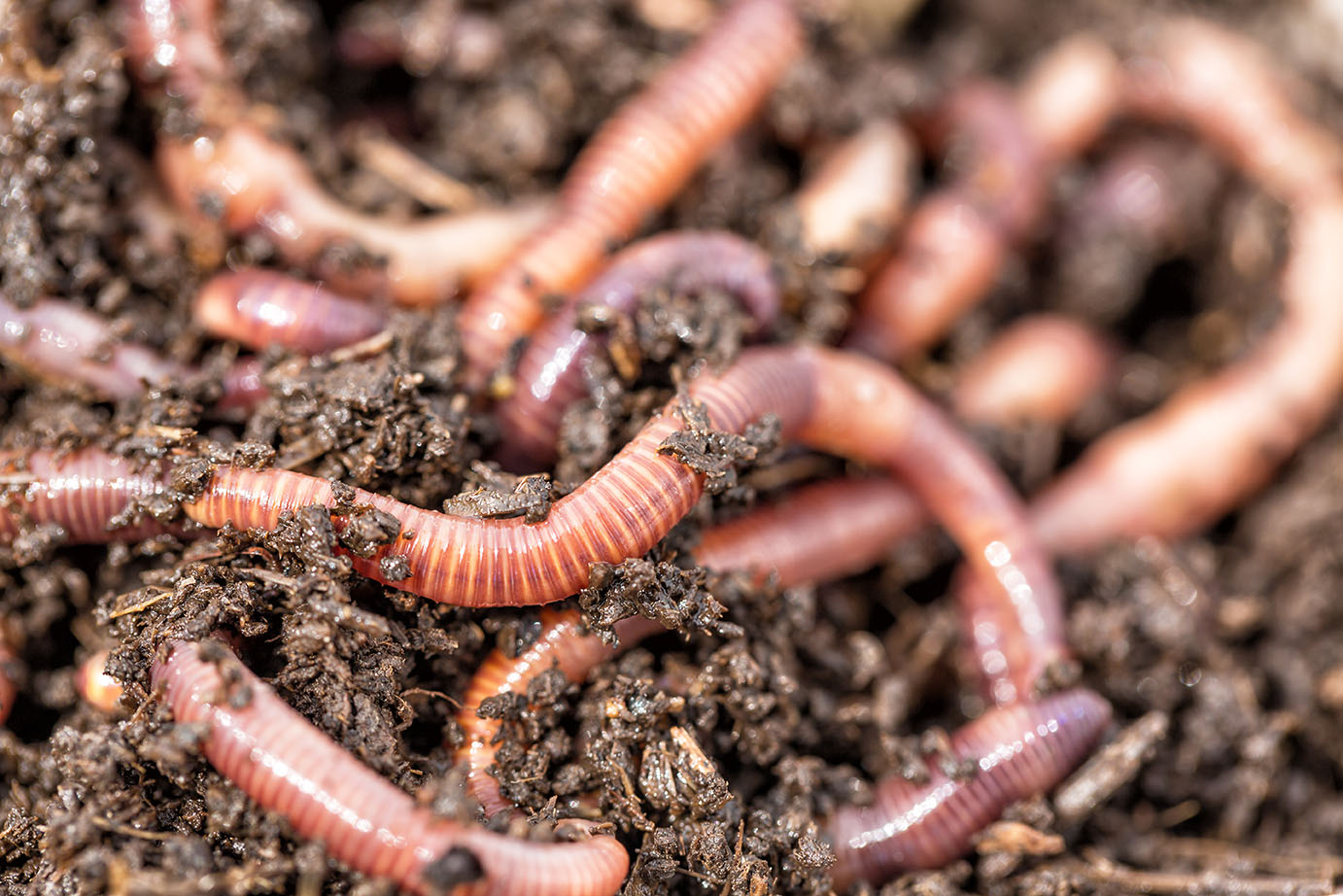

An earthworm is a long, segmented worm that lives in soil. Earthworms are annelids, which means that they have a segmented body. They have a long, muscular body that is made up of about 100 segments. Each segment has a pair of bristles that help the earthworm to move through the soil.
Earthworms are important for the health of the soil. They help to aerate the soil by burrowing through it. This allows air and water to reach the roots of plants. Earthworms also help to break down organic matter in the soil, which releases nutrients that plants can use.
There are many different species of earthworms, but they all have the same basic body plan. They have a head, a short trunk, and a long tail. The head has a mouth and a pair of sensory tentacles. The trunk has the earthworm's organs, including its heart, intestine, and reproductive organs. The tail has a pair of anal pores.
Earthworms are hermaphrodites, which means that they have both male and female reproductive organs. However, they still need to mate in order to reproduce. When two earthworms mate, they exchange sperm. The sperm is stored in the female earthworm's body, and it is used to fertilize her eggs.
Earthworms lay their eggs in cocoons. The cocoons are made of a sticky substance that the earthworm secretes. The cocoons are buried in the soil, and the eggs hatch after a few weeks.
Earthworms are an important part of the ecosystem. They help to keep the soil healthy and they provide food for many other animals.
The earthworm wiggled in the soil.

Noun: earthworm, angleworm, night crawler.
Verb: to earthworm.
Synonym: annelid, oligochaete.
Antonym: none.
The word "earthworm" comes from the Old English word "eorðwrīma", which means "earth-crawler". It is made up of the two Old English words "eorþe" (earth) and "wrīma" (crawler).
Describe what an earthworm looks like,
Question:
Discuss the ecological importance of earthworms and their role in soil health. Explain how earthworms contribute to nutrient cycling and soil structure improvement. Provide examples of how earthworms enhance agricultural productivity and the significance of their presence in ecosystems.
Answer:
Earthworms are ecologically important creatures that play a vital role in maintaining soil health. They are ecosystem engineers, as they burrow through the soil, creating tunnels that improve aeration and drainage. Their activities contribute to nutrient cycling, as they consume organic matter and break it down into nutrient-rich castings, which act as natural fertilisers for plants.
Through their burrowing and feeding habits, earthworms enhance soil structure, making it more porous and allowing plant roots to penetrate deeper, leading to improved water infiltration and root growth.
In agriculture, earthworms are considered beneficial allies. They help increase crop yields and reduce the need for chemical fertilisers. By improving soil quality, earthworms promote healthier plant growth, making agriculture more sustainable and environmentally friendly.
In natural ecosystems, earthworms are vital for maintaining the health of forest floors and grasslands. Their presence aids in soil aeration and decomposition, supporting a diverse range of flora and fauna.
Understanding the ecological importance of earthworms is essential for sustainable land management and preserving soil fertility. They are unsung heroes in the natural world, contributing significantly to soil health and ecosystem balance.
Address
Developing Experts Limited
Exchange Street Buildings
35-37 Exchange Street
Norwich
NR2 1DP
UK
Phone
01603 273515
Email
hello@developingexperts.com
Copyright 2025 Developing Experts, All rights reserved.